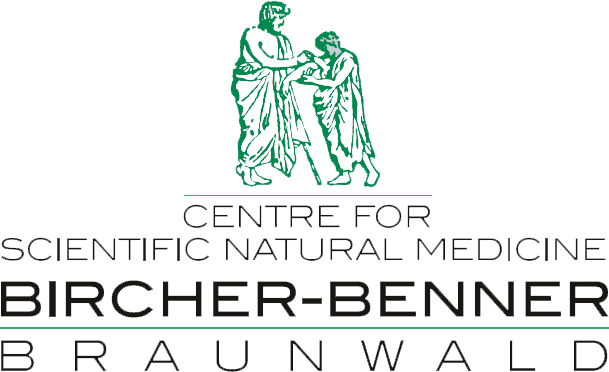ULCERATIVE COLITIS
This inflammatory and bleeding intestinal disease causes unspeakable suffering. Over the past decades, it has become increasingly prevalent and currently affects one in every 500 inhabitants of western industrialised countries, with 3-7 new cases among 100,000 people per year, with women and men being affected equally. In Africa, Asia and South America, ulcerative colitis was an uncommon disease until a few decades ago. As a result of increasing industrialisation and changes in lifestyle and eating habits, an ever increasing selection of industrially manufactured and artificial foods and more and more frequent antibiotic therapies, ulcerative colitis has now become more common in these countries as well. It affects only the large intestine. Its mucous membrane becomes inflamed over a large area accompanied by bleeding ulcers. However, there is no consensus around the causes. This is not a hereditary disease, even if an NF kB transcription factor is suspected. It is suspected that the mucous membrane barrier is damaged by the multitude of detergents that enter the intestine as a result of the high hygiene standard. However, this is not the only aspect that has been increasing in the industrialised countries of the so-called “civilised world”. The toxic background exposure of the population to pesticides, heavy metals and other pollutants, general malnutrition, the industrial processing of food with its myriad of flavourings, preservatives and additives, and the consumption of industrially manufactured ready-made products have all increased tremendously. On top of this, colitis patients were often prescribed antibiotics, especially in their childhood, which damaged the complex ecosystem of the intestinal flora. The result is a prolonged abnormal intestinal colonisation and an overgrowth of the intestinal mucosa with anaerobic putrefactive bacteria. Their toxins destroy the cells of the mucous membrane and produce the bleeding ulcers. As a result, the enteral immune system can no longer fulfil its task of developing dendritic cells and lymphocytes into immunocompetent cells. The ability to distinguish between foreign cells and own cells is partially lost. Incompetent immune cells attack the body's own structures and consequently, the inflammation dramatically increased.
90% of ulcerative colitis manifests itself in flare-ups, usually triggered by stress and psychological strain. Patients are plagued by up to 12 unexpectedly sudden, bloody and slimy bowel movements a day, which cannot always be controlled. Very often this leads to social isolation and enormous hopelessness. The inflammatory processes, anaemia, the loss of bodily fluids, electrolytes and body weight weaken the patients to such an extent that they often have to be admitted to hospital. Apart from this, the inflammatory flare-ups can become life-threatening (toxic megacolon). The risk of colon cancer is also increased in the long term. Curcuma can partially prevent this.
Drug therapy is directed exclusively against autoimmune inflammation. Its objective is to suppress the intensity and the frequency of the flare-ups. Unfortunately, this is not satisfactory for the patient or for his physician. The dosage, number and intensity of the drugs must be increased time and again, and these are drugs with a high, sometimes life-threatening potential in terms of side effects. Far too often all that remains in the end is to suggest surgical removal of the diseased organ: a subtotal colectomy with a J-pouch, a kind of bag that is supposed to hold back the contents of the intestine. Unfortunately, the result of this procedure is usually not very satisfactory due to inflammation, faecal incontinence and sexual impotence.
However, another therapeutic approach exists that can be used to cure ulcerative colitis as a rule: consistent cleansing of the intestinal environment. This is achieved through the patient following a carefully and individually tailored diet of fresh plant foods, initially in liquid form and later pureed, which gradually restores the intestinal flora to its proper state. There are often various food intolerances present. Food allergens can penetrate through the damaged mucosal barrier (leaky gut syndrome). The immune system then reacts against these penetrated food allergens in the form of allergic inflammation. A thorough immunological diagnosis will ensure that the diet can be tailored to the individual patient. Additionally, citrus fruits, certain berries, grapes, rhubarb, stone fruit and all raw and cooked vegetables that are not pureed must be avoided at first, as they would stimulate the bowel too much. On the other hand, blueberries, blackcurrants, apples, bananas and raw vegetables in the form of fresh juices, puree or compote (except spinach and cabbage), thin rice porridge and mashed potatoes soothe the bowel. Almond milk and linseed oil should not be missing from any dietary meal (omega-3 fatty acids calm the inflammatory processes). In the beginning, inpatient therapy lasting at least 3-6 weeks is necessary. The immunosuppressive drugs can partially be reduced immediately and partially in stages until they are finally discontinued. This therapeutic approach addresses the causes of the disease and as a rule allows for complete healing of ulcerative colitis. A worthwhile journey.
Dr. med. Andres Bircher
A word of advice:
In some instances, antibiotics may be necessary. However, always consult your doctor to find out whether another therapeutic approach is possible. If there are no other options, then it is certainly worthwhile to then remedy the damage caused to the intestinal flora with fresh juices, fruits, nuts and - if you can tolerate it - with a little buttermilk, sour cream and bifidus yogurt every day.
